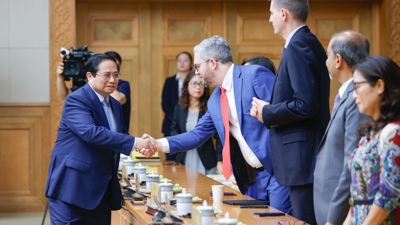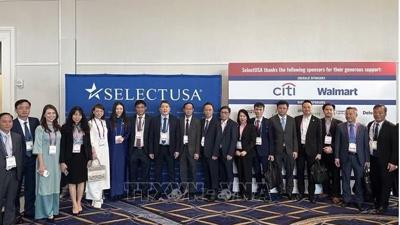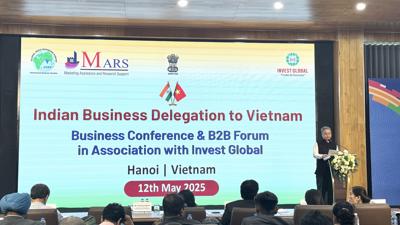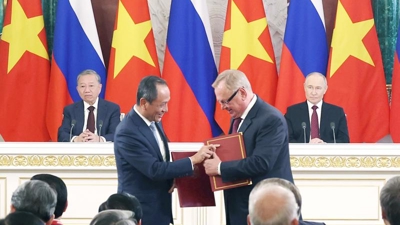WinCommerce to redefine Vietnam’s retail market
Vietnam’s leading modern retail chain, WinCommerce, is confident in the massive potential of the country’s retail market and feels there is space to ‘redefine’ it with a new retail model.
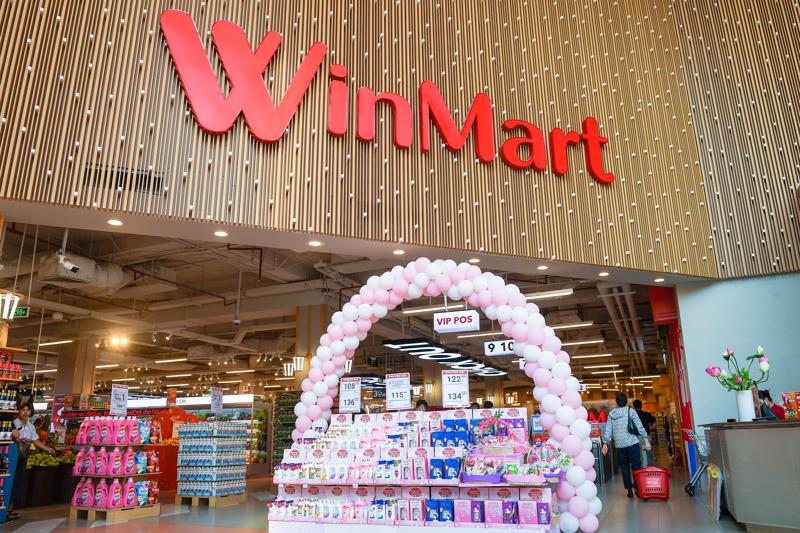
One-stop shop
In a report from earlier this year, market researchers IndianRetailer remarked that billionaire Mukesh Ambani’s Reliance Retail was “the giant changing the face of retail in India.” Founded in 2006, Reliance Retail is a subsidiary of conglomerate Reliance Industries.
Starting as Reliance Fresh, a mini supermarket chain providing consumers’ daily necessities, Reliance Retail has grown to become India’s largest retailer, with a network of nearly 19,000 bricks-and-mortar stores and many online platforms. Its product portfolio is diverse and spans multiple sub-sectors, such as food, fashion & lifestyle, consumer electronics, health & beauty, wholesale, and convenience stores.
A major factor contributing to Reliance Retail’s rapid growth is its expansion strategy, which integrates many fields both vertically and horizontally through merger and acquisition (M&A) deals over the years. For example, in 2013, Reliance Retail’s acquisition of HyperCity helped the former enter the hypermarket and wholesale sectors. A year earlier, the emergence of Reliance Jio provided affordable data packages and widespread telecommunications services, pushing digital transformation across India.
Since 2007, Reliance Retail has successfully acquired Trent Limited, Hamleys, Netmeds, and others to turn these manufacturers into private-brand products commonly sold in Reliance Retail’s supermarket chain. These acquisitions are key to its penetration into bricks-and-mortar retail and e-commerce, The Economic Times notes. The company is looking beyond retail, pursuing a larger plan to tap a growing share of the Indian consumer market, including contract manufacturing and distribution of a wide range of products from affordable fashion and consumer electronics to groceries.
India’s retail market is expected to grow to $1.3 trillion annually in the next few years from $850 billion now, and Reliance Retail doesn’t want to miss out. Analysts say its master plan is to attract Indian consumers into its ecosystem in every way possible: shopping at its vast network of stores or on its e-commerce platform JioMart, using Jio’s mobile network and wifi, watching movies on Jio Cinema, or paying via Jio wallet. The conglomerate calls this its “retail plus” strategy.
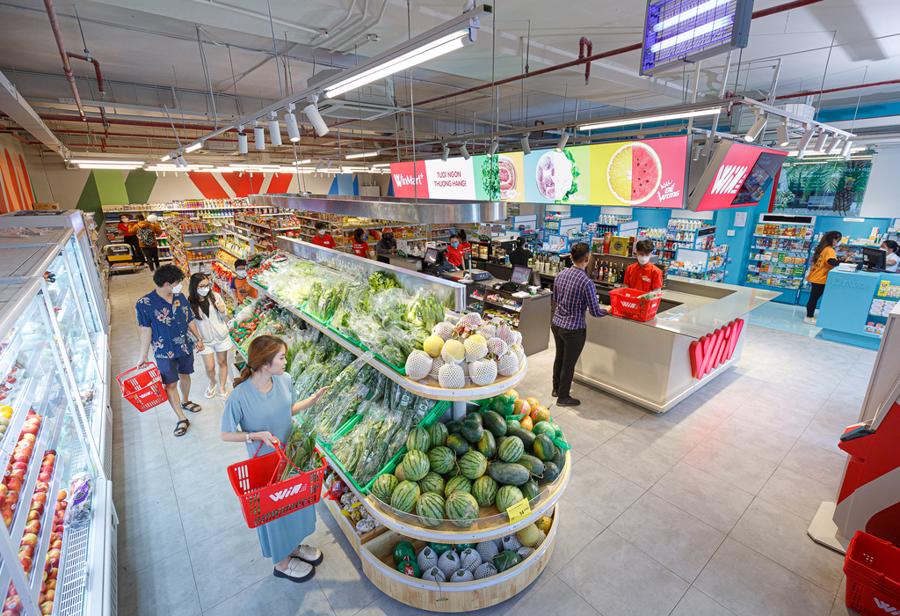
WinCommerce - Point of Life
In Vietnam, WinCommerce, the retail brand under Masan, is on a similar path as Reliance Retail. After joining the Masan Group in 2019, WinCommerce has gradually pursued its “Point of Life” strategy as an “all-in-one” destination serving essential needs in daily grocery (FMCG, retail, and fresh / processed meat), financial needs, and lifestyle (entertainment and healthcare), accounting for up to 80 per cent of consumer spending.
To integrate multiple services in the same store, the Masan Group has also engaged in M&A transactions. In 2021, it spent nearly VND300 billion ($12 million) on acquiring 70 per cent of Mobicast, owner of the virtual mobile network Reddi (now renamed Wintel), thereby entering the telecommunications sector and integrating digital services into its retail consumer platform. It also spent hundreds of billions of VND on acquiring Net Detergent - a detergent business holding 1.5 per cent of the market share, and 3F Viet, marking its entry into the poultry market. Most recently, it acquired Phuc Long - a beverage chain with among the best EBITDA (earnings before interest, taxes, depreciation, and amortization) margins in the food and beverage (F&B) industry.
WinCommerce’s retail supermarket system is also empowered by Masan Consumer, a subsidiary of the Masan Group that owns billion-dollar food brands such as CHIN-SU and Omachi. This helps WinCommerce develop its brands, thereby increasing competitiveness and improving profit margins. The Masan Group also has its own logistics company, Supra, which is dedicated to serving WinCommerce. Established in 2022, Supra now owns ten warehouses nationwide, delivering up to 60 per cent of WinCommerce’s total goods. According to WinCommerce, using Supra’s logistics services helps reduce its transportation costs by 11 per cent.
With this tactic, WinCommerce has integrated all services like essential goods (Masan Consumer), F&B (Phuc Long), finance (with associated lender Techcombank), telecommunications (Wintel), and healthcare (Dr. Win) into its point of sale (POS) units WinMart, WinMart+, and WiN. It now operates nearly 3,700 WinMart supermarkets, covering 62 of Vietnam’s 63 cities and provinces, making up half of all modern retail supermarkets nationwide.
Beyond bricks-and-mortar stores, WinCommerce is also looking to penetrate into online sales channels. Masan has joined hands with Alibaba in an investment deal, thereby bringing WinMart to customers on the Lazada e-commerce platform, which has the third-largest market share in Vietnam. “Many customer segments can find what they need in Masan’s retail ecosystem,” said Dr. Vo Tri Thanh, Director of the Institute for Brand and Competitiveness Strategy. “When WinMart+ convenience stores expand to rural areas, it will open up a new, more modern, and higher-quality lifestyle.”
Wide-open market
WinCommerce’s steadfast pursuit of a multi-utility strategy in one POS and mini-mart has brought fruitful results. In the second quarter of this year, for the first time in six years of building, the retail sector of the Masan Group recorded after-tax profits.
In recent years, WinCommerce’s revenues have fluctuated around VND30 trillion ($1.2 billion) to make it a top 3 retailer in Vietnam. It recently announced that it had achieved positive after-tax profit in July, marking the second consecutive month of doing so. WinCommerce’s achievements have been attributed to its persistence with the mini supermarket model, steady improvements in revenue and profits at each POS, and cost optimization.
A report from Statistics 2023 indicates that India has the sixth-highest rate of two-wheeled vehicle ownership globally, a characteristic it shares with Vietnam, the second-largest market for two-wheeled vehicles after Thailand. This factor significantly influences the strategies of Reliance Retail and WinCommerce. Consequently, both industry giants have committed to the mini supermarket model of “one-stop shop”, leveraging the high number of personal motorbikes in Vietnam and the daily market visits typical of local consumer behavior.
WinCommerce has consistently developed mini supermarkets, targeting rural areas where traditional retail has been deeply rooted in consumer habits, with the goal of reaching 50 million customers. According to Euromonitor, modern retail in Vietnam is still in its early stages as it accounts for just 12 per cent of market share, indicating that WinCommerce still has a lot of room to expand in the modern retail market.
In a new retail industry report, analysts with the Ho Chi Minh City-based Viet Dragon Securities (VDSC) emphasized that Vietnamese consumers’ shopping habits were transformed in the 2019-2021 period due to the Covid-19 pandemic. Consumers are gradually adapting to purchasing through online and modern retail channels, the report said. Meanwhile, analysts have pointed out that modern grocery retailers restructured their operational models to capture this trend in 2021-2023. They prepared to deploy effective operating models in 2023 and will enter a period of expansion and profitability from 2024.
At the annual general meeting earlier this year, Ms. Nguyen Thi Phuong, CEO of WinCommerce, said that by the end of this year, the brand aims to have more than 4,000 stores, equivalent to launching a new store daily. WinCommerce’s confidence in its expansion plan is backed up by the country’s high market potential, the large market share of WinMart and WinMart+, and positive signals from consumption habits, analysts believe.
Another report shows that if Vietnam’s modern retail market develops like Indonesia’s, a regional country with many similarities in terms of population and consumption habits, the size of the Vietnamese market could triple over the next decade, reaching nearly $20 billion. “Since acquiring the WinMart supermarket chain in 2019, we have seen that there is still much room for the modern supermarket industry because the market size of the modern sales channel is $7 billion, accounting for 12 per cent of the Vietnamese retail market worth more than $55 billion,” the Masan Group has affirmed. “In the time to come, we will see a lot of shifts from traditional channels to modern channels.”


